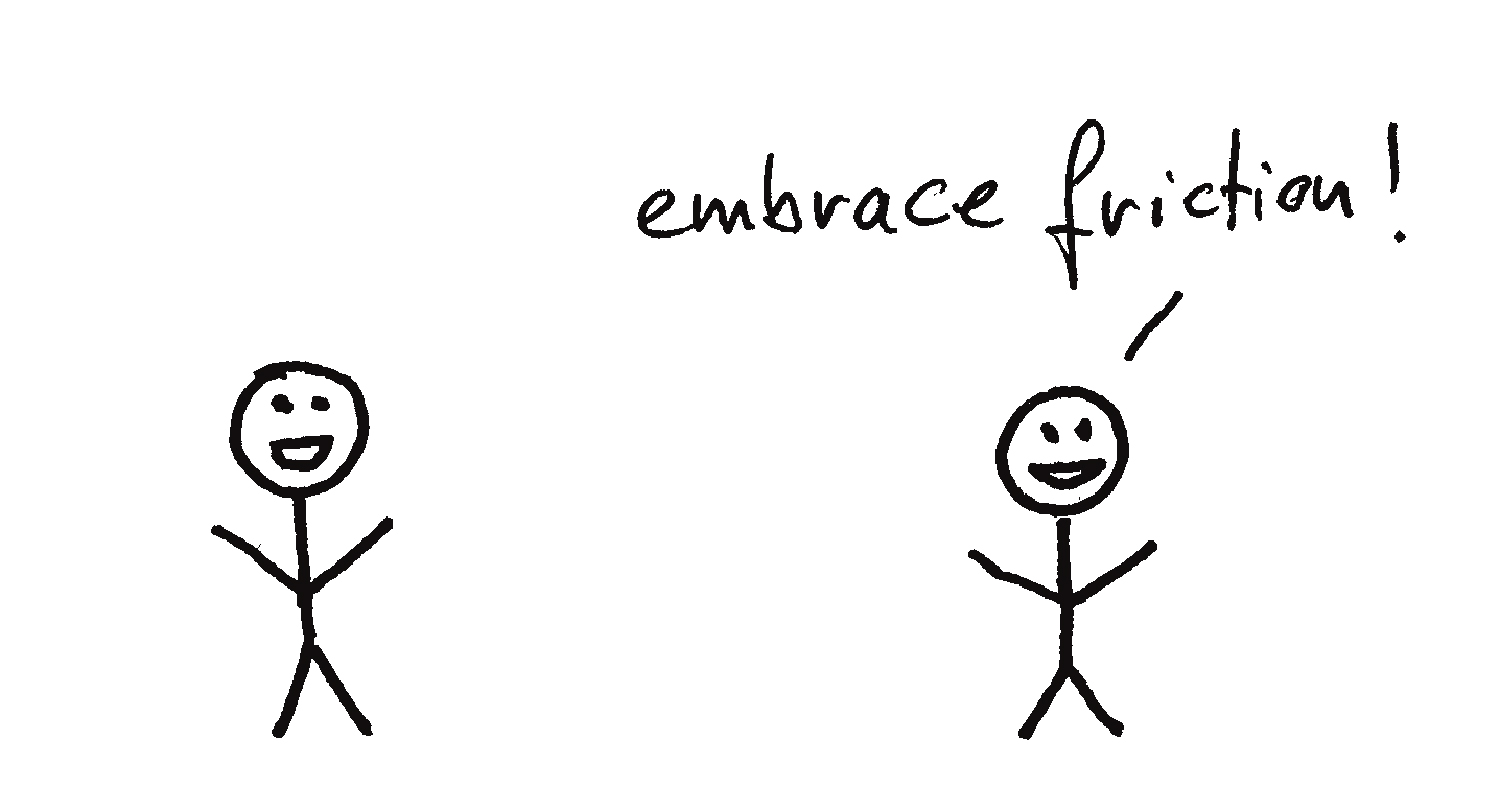cross-posted from: https://lemm.ee/post/39429322
Interesting essay looking at the role of friction in human development, and how a particular vision of technology’s function in society - one that seeks to eliminate friction - paradoxically reduces our autonomy, rather than enhancing it.
This post was reported as spam on technology @ lemmy.world, and was removed, then eventually reinstated, by the mods. The original reason for removal was “it’s not really technology-related.” I suspect it’s being brigaded due to my cryptocurrency criticism, but I have no way to know for sure.
(Edit - update: I have now been banned from technology @ lemmy.world for … I guess asking the mods how this isn’t tech-related? LOL)
While I think the basic idea of deliberately introducing friction is interesting, I’d say the philosophers cited are making what’s really a psychology statement, and so exceeding their qualifications, which irks me. The essay itself is philosophy, at least in the “design philosophy” sense.
If you are designing friction in, how do you go about it without turning away users? BeReal is the first successful-ish example that comes to mind. Forcing you to post at an inconvenient time is arguably friction-y, but people sign up in that case because the friction is experienced socially all at once, and it’s a statement against the atmosphere conventional social media creates. For more practical tools that might be hard to replicate.
I mean, I was lucky to find a life-partner before dating apps were the default, so I’m going to be speaking a little out of turn here.
But I’d imagine that if those apps were a little more friction-y - like, if people weren’t using an almost literally frictionless swipe left and right, but instead were encouraged by the interface to learn something about a person first, or, say, had to click reasons why they were swiping left or right - that it would be easier to make meaningful connections. You’d be designing in self-reflection and curiosity.
And sure, you might turn away some users by doing that - but what if that’s actually a good thing?
Man, anything would be better than swipe apps. I’d use that.
They’re a thing mainly because an “app designed to be deleted” is not a good way to make money. Almost all the big sites have switched over to swiping for that reason.
Ok yeah that’s super interesting, and maybe kinda sums up the whole thing: the devs make tech that reduces the opportunity for thought and engagement, and that frictionless experience results in worse outcomes for users, but better outcomes for profits.
And yet, paradoxically, there are probably plenty more folks like yourself that would prefer to use a different kind of app!
A lot of the best communities to be in have a barrier to entry
The community of pilots, the people who work in medicine or on floor X, the people who are proud of what they can accomplish and recognize automatically that the value of the interactions they have are not worthless.
Idk how you bring that to the online space. But it is missing, yes. I like this essay.
I think there’s a bit of irony in that the most ‘frictionless’ (and dehumanizing) way to interact on Lemmy might be to hit the downvote button. It’s the thing that rewards the knee-jerk, un-considered reaction.
In a way, the downvote button is the thing that perfectly expresses the demand that one’s experience confirm to pre-conceived notions of comfort - without having to face a response from the person being downvoted - and denies the downvoter the potential for growth.
I like this essay too :)
FYI 90.6% of all votes are upvotes.
it’s an interesting article, but i think the authors are conflating friction for wanting genuine human interaction; its easier than ever for me to make friends because i can instantly connect with and message back and forth, quickly and in real time, over various platforms e.g. discord, the depth of which is only limited by our interactions and how we treat them. forcing us back to sms/email/paper mail doesn’t make our interactions deeper, even though it adds friction. it means we can easily choose what the depth of connection we want is
that isn’t to say that there aren’t examples where less friction leads to less interaction. dating apps are a great example. but i think the authors are conflating the friction for the interaction. yes, you could add friction that would encourage interaction, but you could also add friction that doesn’t. i think the more salient point would be, encouraging interaction often includes friction, but one shouldn’t shy away from that, as a UI/UX developer
which, granted, isn’t as catchy of a title. but they could have gone into greater detail for that in the article, too
regardless of this critique, i enjoyed reading it and the perspective it offered, even if i don’t strictly agree





